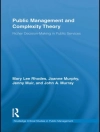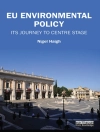Recognising that corruption is a serious problem in the globalised world of the early twenty-first century, the book takes the reader on a journey – beginning with what corruption is, why its study is important and how it can be measured. From there it moves on to explore corruption’s causes, its consequences and how it can be tackled – before discovering how these things are playing out in the established liberal democracies, in the former communist regimes and in the newly industrialised and ‘developing’ world. On the way it takes a couple of detours – first, to explore corruption’s mechanisms and dynamics and second to survey the scandals to which it may give rise. The book is therefore offered as an informative ‘travel guide’ of potential interest to journalists and policy makers as well as to students and academics.
Table of Content
Preface
1 Definitions of political corruption and why study corruption
2 Growth, spread and measurement of corruption
3 The causes and explanations of political corruption
4 The mechanisms and dynamics of corruption
5 Political corruption and organised crime
6 Political corruption and scandal
7 Anti-corruption: prevention and control
8 Corruption in liberal democracies: A case study of Italy
9 Political corruption in Central and Eastern Europe
10 Political corruption in the developing and newly industrialised states
About the author
James L. Newell is Professor of Politics at the University of Salford












